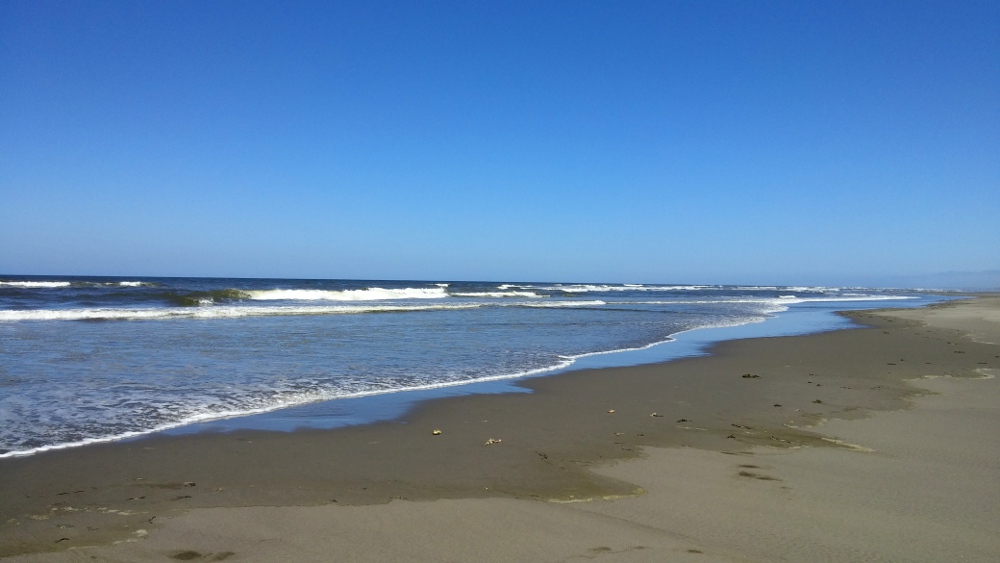My last few articles have dealt with the distress that climate change and other environmental disasters often cause, and how ecopsychology is at a good place to address those feelings of fear, despair, anger and more. Today I want to offer you some ways in which you can promote feelings of hope and optimism in yourself and others, not just to assuage your fears, but to make you better prepared to act in ways that can reverse the damage we’ve done to the planet and ourselves.
–Read about ways people are working to make the world a better place. Paul Hawken’s book Drawdown (and the companion website) is full of solutions for climate change and examples of the people who are making them happen. The Good News Network is exactly what it sounds like–an aggregate of positive news stories that often get overlooked in the flood of negative media. Cambridge Conservation Initiative has an entire site dedicated to Earth Optimism. Actively look for the good news, and try to filter out as much of the bad as you can. You don’t need to go into complete denial about the reality of the situation, but you do deserve a break from the constant onslaught of “We’re all doomed!”
–Practice gratitude every day. Take a few minutes to appreciate the good things in your life, especially those you may take for granted (I even include the ability to breathe oxygen in my gratitude practice!) No matter how seemingly small or insignificant something good may be, take the time to be thankful for it. Remind yourself that not everything is bad, and you’ll get more into the habit of noticing what’s good.
–Practice kind acts, both to people you know and to those you don’t. You may feel that a small kind action doesn’t make much of a difference because it doesn’t take much effort on your part. However, the impact it has may be enormous to the person receiving it. And hey, being nice to others is good for you!
–But don’t forget to be nice to yourself, too. Self-care is underrated and under-practiced, and yet it’s crucial to our health and happiness. Make sure you’re doing your best to take care of basic needs like getting enough sleep, food and hydration. Take a little extra time with your shower or bath to really pamper yourself. Treat yourself every now and then. You don’t have to spend a bunch of money on a big vacation away; sometimes an hour sitting in a park on nice day or playing fetch with your dog can be a much-needed break. Look through my article on Five Minute Ecotherapy to see if anything there strikes your fancy.
A lot of what I’ve mentioned here isn’t specifically about climate change. However, they are designed to help you build up your resilience and a sense of hope so that you have more energy and attention to give to constructive actions. When you feel down, despairing, exhausted, it can be hard to think of anything besides your immediate needs. But when you’re in better condition you have more to spare for others. And that’s where we get to the last two suggestions I have for being hopeful in the time of climate change:
–Talk about climate change. A big part of why more isn’t getting done about it is because people aren’t talking about it. You might feel like you’re the only person around worried about it, but chances are you aren’t alone. You may feel reluctant to speak up, especially if you know you’re around people who are vehement climate change deniers. Here are some tips on how to talk about the subject around just about anyone, and by doing so you can show others who may be similarly worried that they aren’t alone, either. When you find those people, stay in contact and keep the conversation going. That will help all of you to feel more confident and get even more people talking.
–Take action. Go back to Drawdown, and pick one of the 100 strategies they have to combat climate change. Then find a way to get involved, whether that’s making changes in your everyday life, donating money and/or time to organizations helping to implement these changes, or educating others about what’s being done to save the world. Keep up on news about new developments and progress. And if you’ve exhausted all your options on that first solution, at least for the time being, pick another one to get involved with.
All of this can be applied to other environmental challenges, from plastic pollution to habitat loss to mountaintop removal. Give yourself a break from all the bad news, look for the good, take care of yourself so that you can be more resilient, and once you feel up to it get yourself involved in making the world a better place. It doesn’t mean you won’t ever get overwhelmed by the bad news and setbacks again, and sometimes you may need to start all over again with self-care and cutting down on negative media. But it’s hope that helps us to pick ourselves up and dust ourselves off after an upset, and by actively cultivating that hope we can recover that much more quickly to get back into action.

